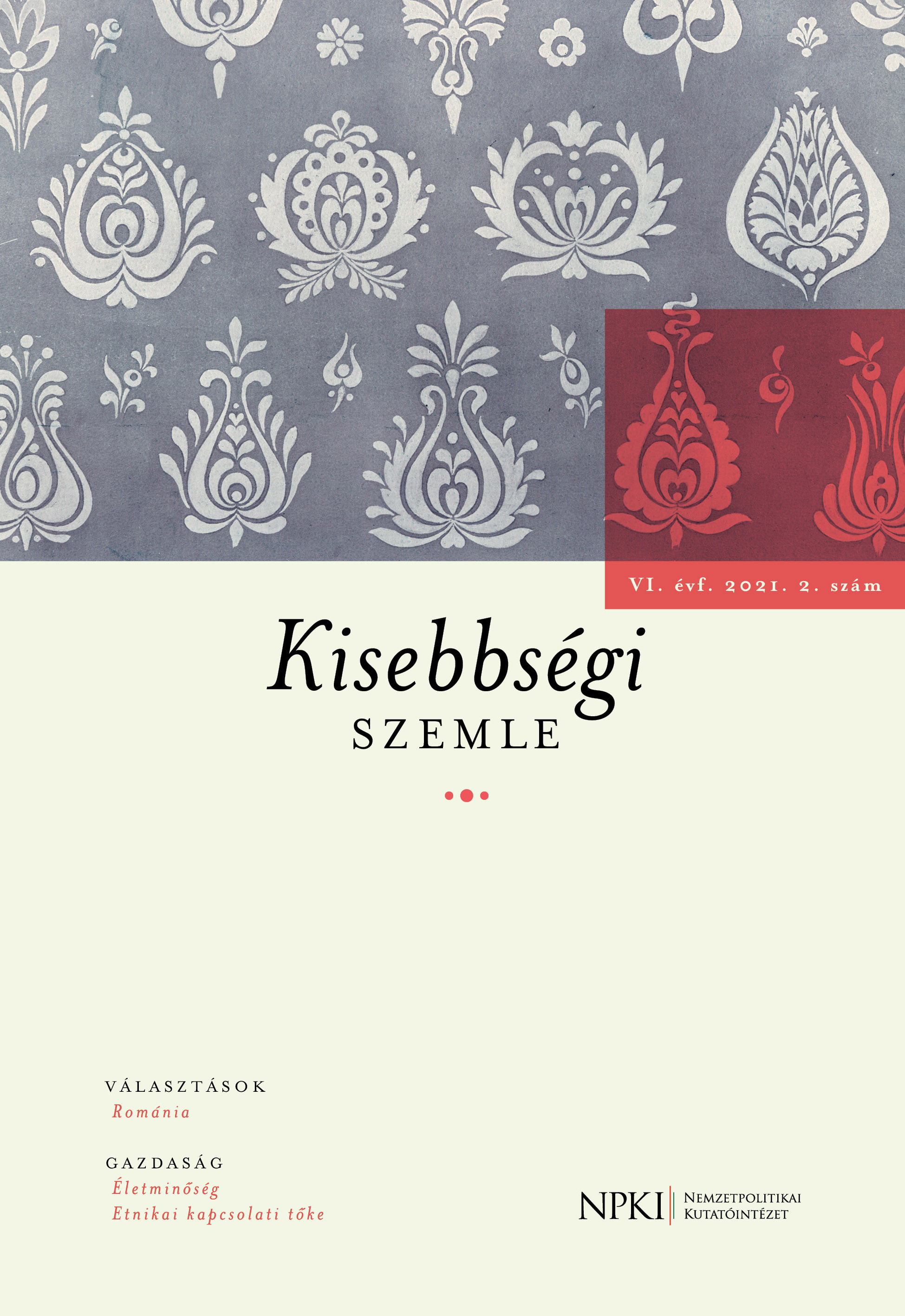Újra benn a parlamentben, avagy az AUR felemelkedése és a szélsőjobboldal újjászületése Romániában
In the Parliament Again The Emergence of AUR and the Revival of the Far-Right in Romania
Author(s): Tamás Zoltán WágnerSubject(s): Politics / Political Sciences, Politics, Social Sciences, Political Sciences, Governance, Sociology, Electoral systems, Ethnic Minorities Studies
Published by: Nemzetpolitikai Kutatóintézet
Keywords: Romania;Election;AUR;
Summary/Abstract: Respective Romanian governments for several years have been emphasizing that there is no far-right party in the parliament, which provided them with a good reputation in European mainstream political circles. In addition, this favorable judgement was also reinforced by the election of a president of ethnic German origin in 2014, as well as by the electoral behavior (anti-PSD) of the Romanian diaspora in the previous parliamentary elections. Nonetheless, the election held in December 2020 radically changed the political landscape. First of all, the turnout was extremely low, which effectively contributed to the success of the Alliance for the Association of Romanians (AUR) as the first far-right party to enter the parliament since the fall of the Greater Romania Party (PRM) in 2008. Secondly, the election refuted the general belief that the Romanian diaspora overwhelmingly supports the right-wingliberal parties. Above all, overt anti-Hungarian sentiment is now again in the forefront of Romanian politics. However, the election results cannot be attributed exclusively to the exploitation of the anti-Hungarian sentiment; other factors, such as the utilization of virus skepticism, also contributed. In the paper, I thoroughly analyze these factors. I take a glance at the characteristics of far-right parties and then the history of the Romanian far-right since the regime change. Finally, I examine the ideology and the key politicians of AUR together with the possible future of the party. During the analysis, I address the allegations that Romanian intelligence or Russia were behind the emergence of the party. I argue that AUR’s entrance to the parliament was not unexpected because those structures and electoral groups are present in the Romanian political life that can be effectively used by far-right parties. It is especially true for this election where AUR managed to utilize multiple factors.
Journal: Kisebbségi Szemle
- Issue Year: 6/2021
- Issue No: 2
- Page Range: 29-55
- Page Count: 27
- Language: Hungarian

